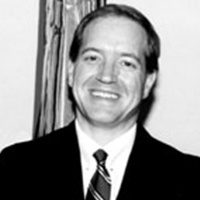Prince Georges County, MD Felony Lawyers
Sponsored Law Firm
-
 x
x

Click For More Info:
-
Hostage Legal Services
30 Courthouse Sq Ste 305 Rockville, MD 20850» view mapCriminal Defense Law The Experience And Insight You Need
Hostage Legal Services cares about your legal challenges. This comprehensive firm is located in Rockville, MD, and serves clients both statewide and nationally.
800-931-4481
Wendy A. Cartwright
✓ VERIFIEDDivorce & Family Law, Misdemeanor, Felony, Contract, Juvenile Law
I have had the privilege of being in private law practice in Maryland for the last 19 years. I was a judicial law clerk for the Honorable Howard S. Ch... (more)
Timothy Joseph Sullivan
Federal Appellate Practice, RICO Act, Felony, Criminal
Status: In Good Standing Licensed: 36 Years
 Christopher Hostage Rockville, MD
Christopher Hostage Rockville, MD AboutHostage Legal Services
AboutHostage Legal Services Practice AreasExpertise
Practice AreasExpertise

